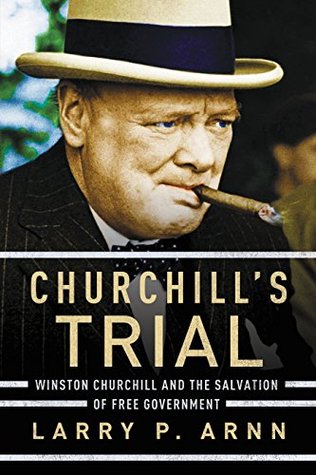More on this book
Kindle Notes & Highlights
Read between
February 6 - March 2, 2022
Churchill did not think this distinction between Left and Right so important: he said that the two tyrannies differ as the North Pole differs from the South.
And the death toll in the Soviet Union of Stalin’s “terror-famine” exceeded the death toll of all nations in the Great War.
Of Labour, Churchill said that the evil effects of the party’s doctrines and policies were not what the party’s members intended, even if those effects were inevitable.
If the constitutional process produces leaders and policies that will undo the Constitution, what is to be done?
Churchill liked the phrase “stoop to conquer,” which he regarded as a virtue of the statesman.
Family is a lot like property in these regards: it seems necessary, and therefore it constitutes a limit on human life. Also it tends to result in wide differences between people.
“The inherent vice of capitalism is the unequal sharing of blessings. The inherent virtue of Socialism is the equal sharing of miseries.”14
If we conquer nature, it cannot provide a standard for what we do or think. We will be left with our own wills and wishes. But the will unguided is nothing more than appetite, and human appetite can be voracious. What is the hallmark of the white ant except that he follows his appetites? By overcoming nature, we surrender ourselves to it.
Capitalism, Churchill thought, gave scope for the exercise of the economic excellences. The whole society would benefit. Socialism, on the other hand, lay “down the law that the pace of our advancing social army must be the pace of the slowest and the weakest man.”
Churchill thought that private property united rather than divided people, at least under the right circumstances. These circumstances included a social safety net to help those in need, about which more later, and the prevention of monopoly.
A state that attempts to equalize things that are not inherently equal will be at war with human excellence.
James Madison wrote that government is necessary because men are not angels, and limits on government are necessary because angels do not govern men.
He would discourage the rich idlers by taxing income from investments more; and of course in Britain the income tax was progressive, as were the death duties.
“The inherent vice of capitalism,” we have seen him say, “is the unequal sharing of blessings. The inherent virtue of Socialism is the equal sharing of miseries.”
He taught that despotic governments are not to be trusted, even if they are to be negotiated with, compromised with, traded with.
He taught that free peoples must work together to guard their freedom, and to do so they must recognize each other for the friends in principle that they are. Churchill taught that when these free peoples are threatened by armed despotism, they should seek unity and also overwhelming force, including especially military force. That was the best way to prevent war, imperfect though it was.
He taught that the discipline, self-restraint, courage, and charity that make a nation civilized and strong must be located in the people, and if people have these things, they can and will care for themselves and for their nation, including their fellow citizens who suffer misfortune and privation.
We should remember that all is not lost until all is lost, and fifty years after Churchill died, all is not lost.
We should remember the last words of his last major speech in his beloved House of Commons: “never flinch, never weary, never despair.”
Great nations are no longer led by their ablest men, or by those who know most about their immediate affairs, or even by those who have a coherent doctrine. Democratic governments drift along the line of least resistance, taking short views, paying their way with sops and doles and smoothing their path with pleasant-sounding platitudes. Never was there less continuity or design in their affairs, and yet towards them are coming swiftly changes which will revolutionize for good or ill not only the whole economic structure of the world but the social habits and moral outlook of every family. Only
...more
Socialism or overweening State life, whether in peace or war, is only sharing miseries and not blessings.
All wisdom is not new wisdom.
The rigidity of the Constitution of the United States is the shield of the common man. But that rigidity ought not to be interpreted by pedants. In England we continually give new interpretation to the archaic language of our fundamental institutions, and this is no new thing in the United States. The judiciary have obligations which go beyond expounding the mere letter of the law. The Constitution must be made to work.
So august a body as the Supreme Court in dealing with law must also deal with the life of the United States, and words, however solemn, are only true when they preserve their vital relationship to facts.


